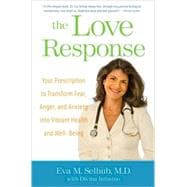
What is included with this book?
| Introduction | p. ix |
| Fear: The Ultimate Silent Killer | p. 3 |
| Fear: A Lack of Love | p. 17 |
| The Antidote to Fear: The Love Response | p. 31 |
| The SHIELD: Your Tool for Transformation | p. 42 |
| Building Your Love Pyramid: Social Love | p. 62 |
| Social Love: Creating the Base of Your Love Pyramid | p. 75 |
| Social Love in Action: Creating Your Soul Family | p. 94 |
| The Love Pyramid: Building Self-Love | p. 116 |
| Self-Love: The Basics for Building Your Love Reserves | p. 124 |
| Self-Love in Action: Reaching Your Full Potential | p. 142 |
| Completing the Love: Spiritual Love | p. 159 |
| Spiritual Love Basics: Learning to Believe | p. 167 |
| Spiritual Love in Action: D.I.G. (Dignity, Integrity, and Grace) | p. 185 |
| Epilogue: Come Swim with Me | p. 205 |
| Acknowledgments | p. 209 |
| Notes | p. 211 |
| References | p. 217 |
| Index | p. 227 |
| Table of Contents provided by Ingram. All Rights Reserved. |
The New copy of this book will include any supplemental materials advertised. Please check the title of the book to determine if it should include any access cards, study guides, lab manuals, CDs, etc.
The Used, Rental and eBook copies of this book are not guaranteed to include any supplemental materials. Typically, only the book itself is included. This is true even if the title states it includes any access cards, study guides, lab manuals, CDs, etc.
Excerpted from The Love Response: Neutralize the Physical Effects of Stress, Turn Off the Anger, Fear, and Anxiety and Restore Balance and Well-Being by Eva M. Selhub, Divinia Infusino
All rights reserved by the original copyright owners. Excerpts are provided for display purposes only and may not be reproduced, reprinted or distributed without the written permission of the publisher.